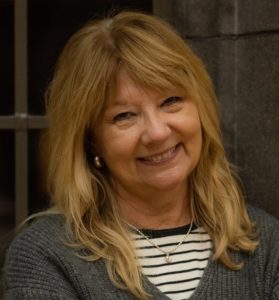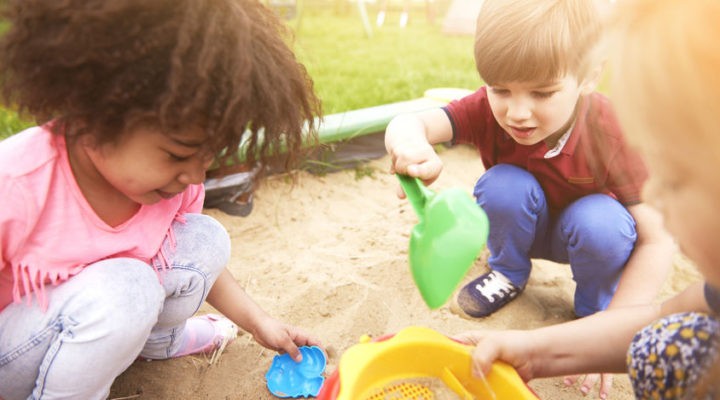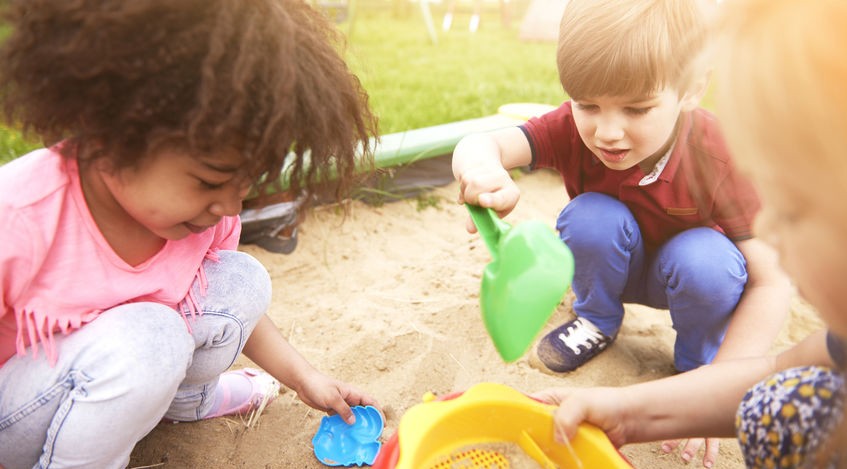As I watched the first round of presidential debates alone in my living room, I was tempted to take shelter behind my couch and occasionally peek over the top. I was distressed by the hostile tones, the snarky comments, the aggressive body language. It seemed to come more from one candidate than the other.
I wondered if I could make it to the end of that showdown. I was relieved to learn more about plans and policies from the vice presidential debates. No need for my weighted blanket after that one.

Paula Mangum Sheridan
Witnessing aggression, even virtually, can activate my own fight, freeze or flight responses as it does for many others. But I stayed with our presidential candidates. For me, it was an exchange of intense and destructive emotions, not policies for national growth and prosperity. It wasn’t easy for me to shake off what I heard and felt. I was injured by adults acting like tired and hungry children in my own living room, as I stroked my basset hound’s ears for comfort. And the next day, I am ashamed to say, I ate more than my share of rugalach.
This chaotic display isn’t over. And won’t be over after the elections. It seems to be a new normal in the media, in corporations, government and other places of civic life. What can we do to minimize the effect that aggression has on us and on our institutions? And dismantle these harmful behaviors? What does self-care and civil discourse look like?
Lessons from the Quakers
I’m grateful for lessons learned from teaching in a college founded by Quakers. As one whose pilgrimage began as a Southern Baptist and found solace in other denominations, I cherish the lessons learned from Quaker authors and friends. I write as an Episcopalian who believes that Quakers are on to something that might help us all.
Quakers value listening. To themselves, to each other, to those who have conflicting viewpoints, to God. Quakers seek the inner light, that of God, in all persons, even their enemies. Quakers also respond to that of God in everyone. Listening is one way to seek and discern truths, not gathering ammunition for the next verbal volley.
“Wisdom and light can come from the most expected and unexpected places.”
Wisdom and light can come from the most expected and unexpected places. From people we pretend to value but really don’t. The least of these.
The carefully nurtured skill of listening gives us an opportunity to hear the many layers in our words and the words of others. We may discover pain, fear or a wide variety of beliefs and emotions that result in hostile words or actions. It can change the way we see others. We may never find them endearing, but we might feel a bit more compassion. We may even find a wisdom we have not yet experienced but is offered freely because we are paying attention.
Another Quaker practice is that of query, the tool of asking questions in worship or with each other in ways that develop discernment in decision making and action. Questions are not advice or accusations, but rather open-ended inquiries that create space for new ways of interacting and understanding each other. These kinds of questions can loosen the grip of unexamined expectations and beliefs about ourselves and others and possibly help us see our world from a new light.
We learn more about ideas and motives before we jump in with our opinions and arguments. Allow another’s words to sink in. What are we learning because we are making a space for another person’s ideas? We have more time to reflect and respond, particularly when we disagree. It is a discipline we can develop over time. It’s all too easy to tell another what we think is best for them. And in doing so, we’ve robbed them of their own wisdom and discovery.
I am not suggesting that political debates become times of mediation and reflection for the candidates or viewers. But is it too much to ask that candidates show us that they can listen to one another? Without steamrolling over an opponent? Instead, can one respond to a question that demonstrates a mastery of information, skill and civility?
Lessons from preschool teachers
I know people who are good at this. I wish the presidential candidates were required to spend some time with my adult children’s preschool teachers. They are still at the top of their game. I wonder if they could help our leaders understand the inevitable connection between self-care and community, productive uses of anger and using your words for reconciliation and civility.
“No matter what went down in the sandbox, our children were supported in peace-making and problem solving, even when they felt flooded with distress.”
No matter what went down in the sandbox, our children were supported in peace-making and problem solving, even when they felt flooded with distress. Children had space to emotionally regulate themselves without hurting another child. There are ways to let it out without setting someone else on fire. They knew how to say they were sorry, and most of the time, they meant it. Even the 4-year-olds learned that if they were unkind to another child, playing wasn’t as much fun.
Children who dominated other children were redirected, given support or provided extra resources. Aggressive behavior was viewed as a cry for help, a flare that something was not right and needed attention. Stopping that behavior comforted the child in distress and other children as well. Young children learned to feel safe and take responsibility for creating a community where they belonged and helped others belong. Once kindness became the norm, then unkind behavior was easy to identify. I observed teachers delicately intervene with care, not shame.
I knew my children would learn how to be kind and create community there. I underestimated how much I learned that still informs how I treat myself and others. Once you’ve had this imprint of kindness and you learn how to do your part, it changes the game. You’re not quite as comfortable in places that lacks norms of civility and self-care.
Seeking better behavior
I know our political saga is still unfolding as our country elects leadership for the next four years. We have a cherished history of peaceful transition or continuation of power. I hope we are able to reclaim some of that peace. I hope we insist on higher standards of behavior from those whom we elect to govern our country and shape our world.
We cannot let the bullies in ourselves or others rule the playground, no matter how large or small the space may be. Bullies operate out of their fears, not their strengths. People who bully will never know their talents and abilities unless we stop them from tearing up the neighborhood. If Quakers are right, bullies have inner light, too.
I am sitting on the couch on the next debate, looking at the candidates straight in the eye. And I will fortify myself with the company of trusted friends who have a pretty good handle on regulating their behaviors. I’m weary of leaders with bad behavior not being held accountable. That’s our job to call out the best in others.
I’m going to live out the lessons I learned from my children’s preschool teachers. I want to make my playground a place where everyone can safely play.
Paula Mangum Sheridan recently retired from Whittier College as an associate professor and program director of the social work department. She is a licensed clinical social worker and supports voter accessibility and the rights of people without homes in her community.


